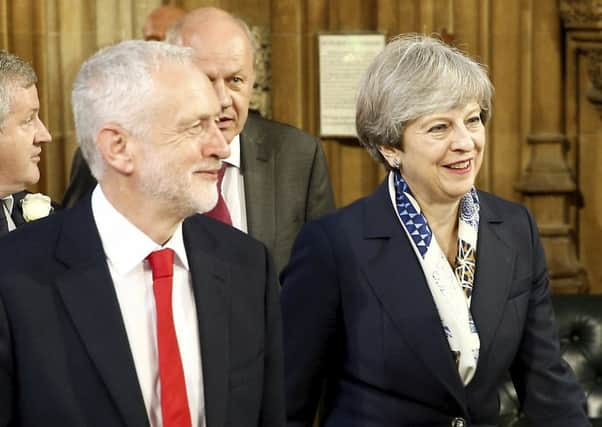Leader comment: Muted manifesto is a blessing in disguise


That doesn’t make the speech a waste of time. Instead, we should remind ourselves that the dropping of several of the more contentious proposals represents confirmation of the democratic process. The electorate did not give the Conservatives the mandate the Prime Minister sought, and in fact withdrew previous consent as part of the process. It would have been reckless to press on with the manifesto pledges which ran the Conservatives into so much trouble, and right now, Mrs May cannot afford to risk further alienating any of her backers. She needs all the friends she can get after first misjudging the electorate and then angering the public with her insensitive handling of the Grenfell fire disaster.
Of course, we haven’t seen the whole picture at this stage. Mrs May could be in a stronger position if she can agree a deal with the DUP to shore up her minority administration, and after that, we could see elements of the original manifesto put back on the table.
Advertisement
Hide AdAdvertisement
Hide AdThat would be a serious mistake, and would hasten Mrs May’s demise. She has to recognise that the electorate might not have rejected her manifesto, but nor was it given an endorsement.
It is tempting to suggest that the Prime Minister has the nous to realise when a policy is not going to work, given her abrupt U-turn on the dementia tax during the election campaign. But she should have had the political awareness to realise that this was a bad idea in the first place.
The need for a muted agenda is perhaps a blessing in disguise for the government, and for the country. This is not the time to take on a full programme of far-reaching legislation when negotiations with the EU are ongoing, and when Brexit itself will require considerable upheaval of existing legislation.
We are entering a period which is likely to become the most challenging and complex of all legislative programmes a UK government has ever had to push through. With her reduced majority, carrying out her main responsibilities will be a struggle for Mrs May. If she wants to stay in power, she might one day have reason to be thankful that her intended manifesto has had to come a distant second to the absolute priority of Brexit.